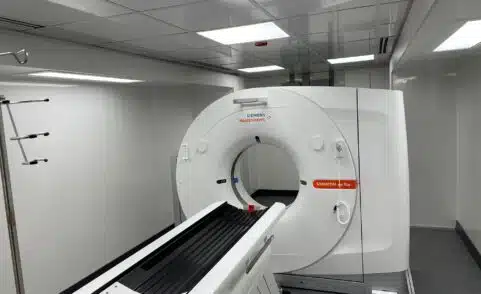
Understanding Your Health Insurance
When you’re concerned about your health or the health of a loved one, your focus is on getting the answers you need. The last thing you want to worry about are the ins and outs of health insurance. Alyssa Cloninger, Insurance Supervisor and Patient Advocate at Froedtert and the Medical College of Wisconsin RAYUS Radiology, understands.
“Whether patients are getting an MRI or a CT, they’re nervous,” she says. “They don’t want to have to worry about insurance.”
That’s why, in our centers across the country, you’ll find insurance specialists who can help you navigate your health insurance so that your health or the health of a loved one can be your top priority.
Here are some frequently asked questions Alyssa and our other insurance specialists often hear from patients:
What does it mean to be in-network or out-of-network?
In-network means that the hospital, clinic or provider has a contract with your insurance company to provide services at a discounted rate. Using an in-network provider typically provides you more benefits such as lower co-pay, deductible or other out of pocket costs.
Out-of-network means that the hospital or clinic or provider does NOT contract with your insurance company for a discounted rate. You can still get care from an out-of-network provider, but it typically means higher out-of-pocket costs for you than using an in-network provider.
If you have a question about whether or not a hospital, clinic or provider is in-network, call your insurance provider or refer to their website. Remember, it is always your choice where you go to get your care. According to Alyssa, “If you do a little homework to figure out who is in your insurance provider’s network, you will know you have options in where you choose to get medical imaging.”
Across the country, we accept most major insurance plans, including auto accident, workers’ compensation and government-funded programs. In most cases, we are an in-network provider, but please refer to your health plan information or call ahead to confirm your coverage and requirements for acquiring a prior authorization.
What does prior-authorization mean?
Prior-authorization is a requirement from your health insurance company that your provider obtain approval from your plan before it will cover the costs of a specific medicine, medical device or procedure. Many insurance companies require some kind of prior-authorization for medical imaging exams such as an MRI or CT. Our insurance specialists will work with your insurance company directly to obtain a prior-authorization for your procedure.
Can I get a cost estimate in advance?
If you want to know the cost of your imaging exam before your appointment, call your center and ask for an insurance specialist to provide a personalized price estimate based on your coverage. You will need the name of your referring provider, the type of exam and your insurance information.
There are a number of factors that going into providing an estimate, including whether your exam requires contrast or not. Other factors such as your insurance deductible and out-of-pocket maximums can also impact the final cost of your exam.
If you are comparing costs with other imaging centers, be sure to ask if you will receive one ‘global’ bill or two separate bills. For imaging exams there is a technical fee for the imaging as well as a professional fee for the radiologist to review your images and write a report for the doctor who referred you for imaging. Some facilities send one ‘global’ bill that includes the technical fee and professional fee, while others send two separate bills. It is important to ask what charges make up your estimate and if it includes both fees.
